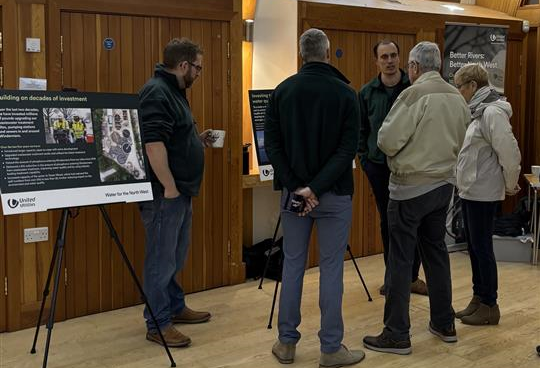An update on our work at Ambleside

The scheme at Ambleside is an important part of our £200m investment to help reduce spills into Windermere and further improve wastewater treatment standards.
That continues to be the case and activity on site to date has helped inform our next steps.
We’re getting in touch to explain more about why the main scheme hasn’t commenced as planned in February. A review is taking place of the proposed solution at Ambleside.
While that is done, some preparatory site activities that needed to take place will continue as planned however, please note that this means that more significant works won’t begin this month while the review is carried out.
We’re committed to delivering the right solution for Ambleside and we’ll share more soon.
Going further to take treatment around Windermere to the next level
More than £75 million has already been spent upgrading the wastewater treatment and network around Windermere.
Going further we’re now investing a further £200 million which will reduce spills from the six overflows which can discharge into the lake to an average of less than ten per year – while also taking standards at the treatment works to a higher level or the highest achievable standard using the best available technology.
This would see improvements to wastewater treatment sites at: Ambleside, Far Sawrey, Ferry House, Grasmere, Hawkshead, Langdale, Near Sawrey, Outgate and Troutbeck, helping improve treatment for phosphorus and creating extra storage capacity to store stormwater.
What you can expect to see
To help our engineers develop our plans for these sites, you may see some activity taking place around the area. Our work will include ground investigation surveys. These help us understand the local geology and rock formation. We carry out various surveys to confirm ground conditions or the location of other utility pipes and cables.
The surveys and investigations may involve digging or drilling small holes into the ground using specialist equipment or clearing shrubs and vegetation before the main work is due to begin.
We’ll also be carrying out ecological and wildlife surveys. These help us understand and identify areas where we need to keep construction to a minimum, protecting the environment and habitats around us.
This work will not impact your existing water and wastewater services and we’ll endeavour to keep any disruption to a minimum.